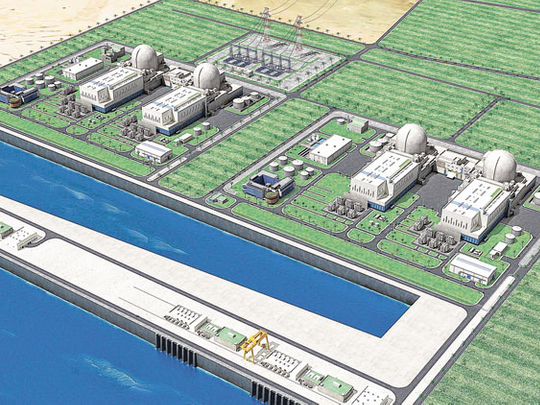
Dubai: Electricity demand in the Middle East is projected to rise by 25 per cent per annum between 2010 and 2015, a report shows.
The Deloitte and Touche study also notes that nuclear power stations are expected to be built across the Middle East to meet this growth.
"The nuclear momentum has started across the region. Of the 60 countries around the world that have expressed an interest in, or are actively planning to introduce nuclear power, almost every country in the Middle East is represented," said Kenneth McKellar, partner and Middle East Energy and Resources Industry leader at Deloitte Middle East.
The report also reveals that although the bulk of the increase in electricity demand will be met by natural gas, the availability of gas in the Middle East at its current heavily subsidised prices is uncertain.
There is increasing pressure on Middle Eastern countries with indigenous gas reserves to export their gas and benefit from international market prices rather than use it domestically at rates that by 2015 are projected to reach no more than half the international market price.
Industrial growth
Abhay Bhargava, industry manager of Energy and Power Systems for Frost and Sullivan, said the increase in electricity demand is due to the increased industrial growth that many GCC countries are experiencing.
"There has been an aggressive increase in industrial growth as many of the GCC countries are looking for diversification in various sectors. In Qatar and Saudi Arabia for example there has been an aggressive increase in the petrochemical sector," said Bhargava.
He also notes that the focus of many Middle Eastern countries will be on increasing power production rather than reducing the demand for it.
"Nuclear power production is a viable and immediate solution to combat the increasing demand for electricity in the region," Bhargava said.
Countries that have taken the step towards developing nuclear power stations include the UAE, whose first nuclear power plant is scheduled to begin operating in 2017; Saudi Arabia, which established the King Abdullah City for Nuclear and Renewable Energy in 2010 with a mandate to develop a national nuclear and renewable strategy; Jordan, which imports 95 per cent of its energy needs, and Egypt, which is expecting its first nuclear plant to be operational by 2019.
McKeller explained that oil, despite its abundance in the GCC countries, cannot be used for power generation except at times of peak demand, and that there are no significant reserves of coal in the Middle East that can be used for the purpose.
Filling the gap
Other forms of renewable power generation like hydro-electric are currently too insignificant to meet the electricity demand and as a result he feels that nuclear energy is the only source of power generation that can realistically fill the supply-demand gap.
McKeller added that the generation of nuclear power presents a significant set of challenges for all the Middle Eastern countries that have chosen to embrace it.
Each country will need to develop the infrastructure needed for a nuclear power programme entirely from scratch. But the biggest challenge for all the new nuclear Middle Eastern countries will be finding the local and international human resources needed for their nuclear programmes.
Bhargava added that even though nuclear power production is an attractive and immediate option for many countries in the GCC, few will be able to acquire the contraction award needed to start building the nuclear power stations.
The interested actors will have to prove they are willing to adopt and comply with the nuclear standards put forth by the International Atomic Energy Agency (IAEA) and the World Nuclear Association (WNA).












